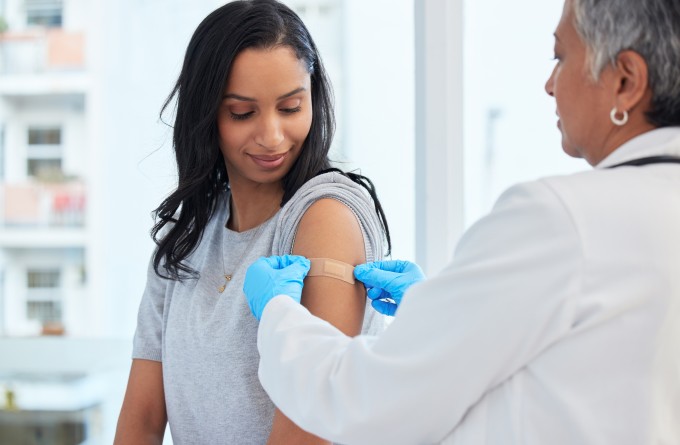23 June 2025
As temperatures drop, colds, flu and other respiratory infections become more common. Dr Kerry Hilligan and PhD student Caitlin Brown are researching respiratory diseases and their impact on the immune system. We asked them why winter takes such a toll and what we can do about it.

PhD Student Caitlin Brown (left) and Dr Kerry Hilligan
Why do we tend to get more colds and flu in winter?
Kerry: There are two main things that contribute to cold and flu season. Number one is human behaviour. Generally, transmission happens in closed indoor spaces, and when it’s cold we tend to spend more time indoors and less time outside. The second factor is ventilation. When it’s cold, we tend to keep our windows closed which decreases the exchange of air and contributes to transmission.
There is also evidence that humidity plays an important role. A research group based at Yale University found that humidity and temperature really affect the respiratory tract. Cooler air is drier (despite the perception of damp winter homes!) and it affects the mechanisms we have in our lungs to clear mucus that traps bugs we inhale, which can make people more susceptible to infection.
Caitlin: Also, with cooler temperatures, viruses, bacteria and other pathogens tend to survive better in the environment for longer – so there are more opportunities for them to infect you.
What effect does winter have on the immune system?
Kerry: The antiviral response is key to fighting winter colds and flu. Our immune system is in constant battle with viruses we breathe in and even subtle changes in our ability to produce antiviral molecules like interferon can give viruses enough of an edge to cause infection. The same Yale study found that these antiviral responses are diminished during the colder months.
Is there anything we can do to support our immunity during winter?
Kerry: Vitamin D is very important for the body, including the immune system. It’s required to regulate calcium in the body. Normally vitamin D is produced in the skin when exposed to the sun, so during winter some people can struggle to make enough to keep them and their immune system healthy.
Also making sure we get enough sleep and keep on top of basic hygiene like hand washing are important aspects for combatting infection.
Caitlin: Get vaccinated. Get outside – or at least ventilate your home!
Related articles

NZ-UK research deepens understanding of germinal centres for better vaccine design
27 January 2026

How a quirk of the immune system may play a big role in protecting us from disease
18 December 2025

The nose knows: new research explores next generation of nasal vaccines
2 December 2025

Marsden funding to drive discovery and innovation in cancer, allergy and infectious disease research
5 November 2025

How our immune system tackles fungal foes
23 October 2025

New funding supports cutting-edge research into immune cell metabolism
13 October 2025
